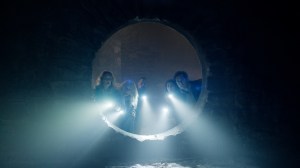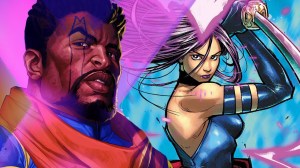Two-time Academy Award nominee Djimon Hounsou recently revealed that despite decades of acclaimed performances across prestige dramas and blockbuster franchises, he still struggles financially in Hollywood. The news is outrageous, to say the least, as Hounsou’s illustrious career has put him front and center of box office hits and critical darlings, which are only as good as they are due to the star’s intense and nuanced performances. Hounsou’s experience with persistent lowball offers and demeaning salary negotiations illuminates the entertainment industry’s systemic inequities.
Videos by ComicBook.com
So, the time is right to remember why the actor is a Hollywood powerhouse who should be paid accordingly. Here are five Djimon Hounsou performances that illustrate the depth and impact of his work.
Chief Mbonga in The Legend of Tarzan
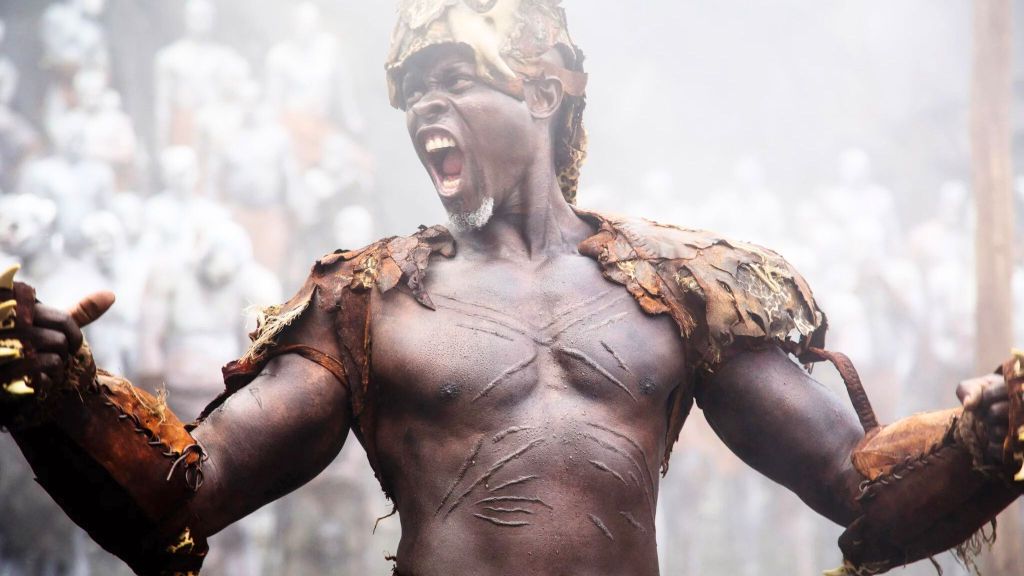
Vengeance rarely wears a face as compelling as Hounsou’s Chief Mbonga. Where lesser actors might have surrendered to stereotype in this reimagined Tarzan tale, Hounsou excavates the wounded heart of a father mourning his murdered son. His commanding physical presence becomes merely the vessel for something far more intimate: a flaming grief pulsating beneath every scene featuring Hounsou.
Director David Yates’ The Legend of Tarzan failed to connect with critics and audiences. Still, Hounsou’s role in the jungle adventure is unanimously considered the movie’s highlight. That’s not a surprise, as Hounsou’s performance remains defiantly human, even if surrounded by CGI spectacle. While The Legend of Tarzan is far from being the best movie in Hounsou’s career, his take on Chief Mbonga is a reminder that a great actor can be mesmerizing despite the potential flaws in a movie’s script and direction.
Juba in Gladiator
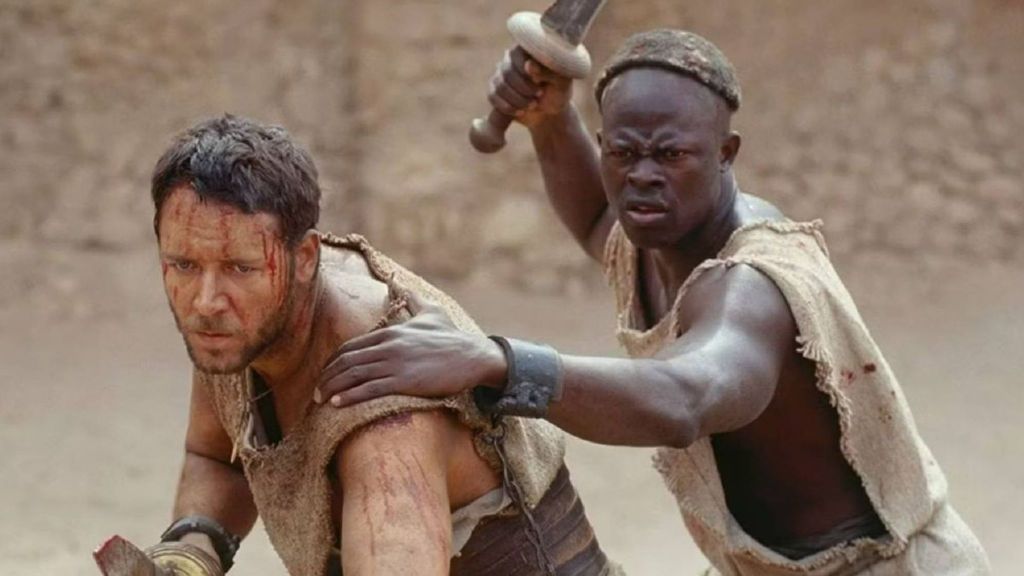
In Ridley Scott’s Oscar-winning epic, Hounsou transforms what could have been a disposable supporting role into one of Gladiator‘s most memorable characters. As Juba, a Numidian warrior forced into gladiatorial combat, Hounsou creates startling intimacy amid the film’s sweeping spectacle. For example, his nighttime conversations with Russell Crowe’s Maximus reveal an actor capable of finding profound humanity in the smallest moments.
Gladiator dominated the 2001 Academy Awards with five wins, including Best Picture, and critics particularly praised the film’s ability to balance intimate character moments with grand historical drama. Hounsou’s contribution to this balance proves essential, as his Juba provides spiritual guidance and warrior counsel to Russel Crowe’s protagonist. The final scene, where he buries Maximus’s family totems in the Colosseum sand, demonstrates how Hounsou can convey volumes without words, providing the emotional resolution this blood-soaked revenge tale desperately needs.
[RELATED: Djimon Hounsou Reveals How Rebel Moon Brought Friendship With Zack Snyder Full Circle]
Mateo in In America
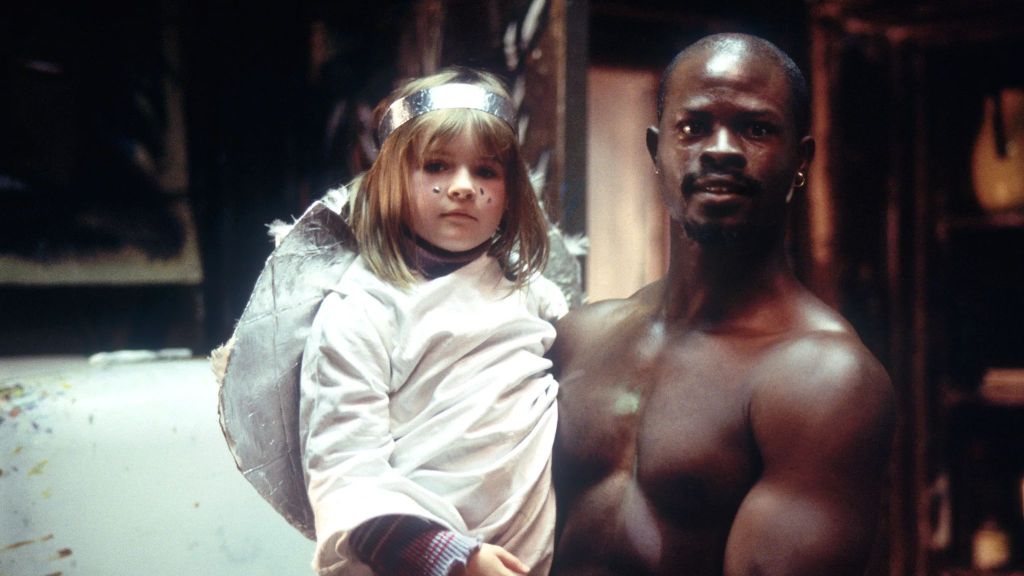
Jim Sheridan’s semi-autobiographical drama earned three Oscar nominations, including Hounsou’s first for Best Supporting Actor. As Mateo, an artist dying of AIDS who befriends an immigrant Irish family, Hounsou shatters stereotypes about terminal illness through sheer force of nuance. His character enters as an angry shout through apartment walls but evolves into the emotional cornerstone of this intimate family portrait.
In America garnered universal acclaim for its delicate handling of grief and renewal, with critics particularly noting how Hounsou’s performance anchors the film’s exploration of healing. His scenes with Sarah (Samantha Morton) and Emma Bolger (Emma Bolger) achieve a rare authenticity, especially during a pivotal Halloween sequence where joy and mortality dance in unison. The role also marked a crucial departure from Hounsou’s more physically demanding characters, underlining his ability to command the screen through stillness and subtle emotion.
Solomon Vandy in Blood Diamond

Edward Zwick’s politically charged thriller uses Sierra Leone’s civil war as a backdrop for a story about conflict diamonds, earning five Academy Award nominations including Hounsou’s second for Best Supporting Actor. In the movie, Hounsou plays Solomon Vandy, a fisherman forced into diamond mining after being separated from his family.
While some critics found Blood Diamond‘s overall approach heavy-handed, Hounsou’s performance received universal acclaim. His interrogation scene following the discovery of a rare pink diamond stands as a masterclass in controlled escalation. Against Leonardo DiCaprio’s morally ambiguous Danny Archer, Hounsou’s Solomon emerges as the film’s conscience. Their opposing worldviews – Archer’s cynical opportunism versus Solomon’s desperate quest to reunite with his son – create the dramatic tension that drives the narrative forward.
Joseph Cinque in Amistad
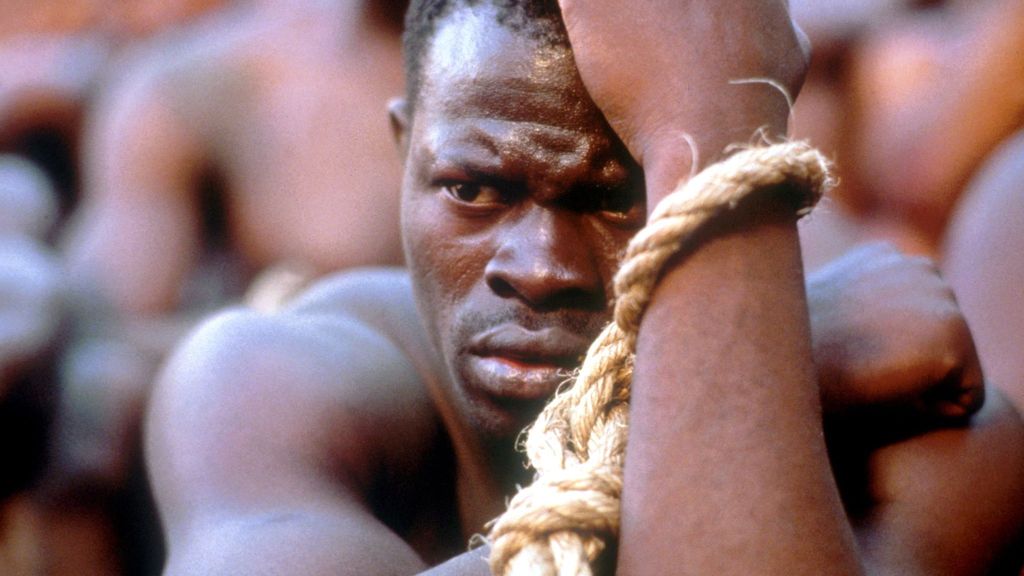
Steven Spielberg’s historical drama about the 1839 slave ship rebellion thrust Hounsou into Hollywood’s spotlight with a performance that transcends mere acting. As Joseph Cinque, the Mende tribesman who led the revolt, Hounsou delivers one of cinema’s most powerful portrayals of the fight for human dignity. Despite earning a Golden Globe nomination, his shocking Oscar snub foreshadowed the industry’s persistent undervaluation of his talents.
Amistad received mixed reviews upon release, with some critics finding Spielberg’s approach too conventional for such powerful material. However, Hounsou’s portrayal garnered unanimous praise, particularly for his courthouse scenes delivered entirely in Mende. His testimony to John Quincy Adams (Anthony Hopkins) becomes the film’s defining moment, a monologue about ancestral strength that transcends language barriers through sheer emotional force. In capturing Cinque’s evolution from rebel to eloquent advocate for justice, Hounsou created an enduring portrait of resistance that resonates well beyond the film’s historical context.

